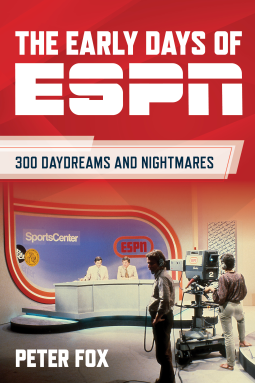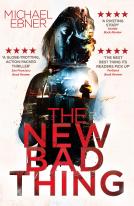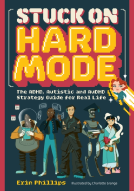Please wait... This may take a moment.
The Early Days of ESPN
300 Daydreams and Nightmares
This title was previously available on NetGalley and is now archived.
Pub Date
4 Jun 2024
| Archive Date
7 Jun 2024
Description
The tales of early ESPN people who gambled their careers while critics carped that “all-sports television will never work” are full of guile, luck, fear, fun, and unbridled optimism. As ESPN’s founding executive producer, Peter Fox was privy to some spectacular professional efforts by a cadre of Connecticut locals who made the dream real. The first 300 days of the fledgling network were filled with mayhem, on-air gaffes, and the slowest instant replay in television. What started as a humble idea in the late spring of 1978 to capitalize on the brand-new mania for UConn men’s basketball soon morphed into ESPN and a plan to begin airing a series of “test broadcasts” in the fall. This is the story of the early days at ESPN, told by one on the network's launching pad, and how a conversation over a couple of martinis in 1978 led to the creation of a broadcast juggernaut.
The tales of early ESPN people who gambled their careers while critics carped that “all-sports television will never work” are full of guile, luck, fear, fun, and unbridled optimism. As ESPN’s...
Description
The tales of early ESPN people who gambled their careers while critics carped that “all-sports television will never work” are full of guile, luck, fear, fun, and unbridled optimism. As ESPN’s founding executive producer, Peter Fox was privy to some spectacular professional efforts by a cadre of Connecticut locals who made the dream real. The first 300 days of the fledgling network were filled with mayhem, on-air gaffes, and the slowest instant replay in television. What started as a humble idea in the late spring of 1978 to capitalize on the brand-new mania for UConn men’s basketball soon morphed into ESPN and a plan to begin airing a series of “test broadcasts” in the fall. This is the story of the early days at ESPN, told by one on the network's launching pad, and how a conversation over a couple of martinis in 1978 led to the creation of a broadcast juggernaut.
Advance Praise
“Sports fanatics will appreciate the firsthand recollections of the channel’s origins.” —Publishers Weekly
"We were like Mercury astronauts. We were rebels without a clue and working our asses off. I knew this was a good idea. We had a hand in building something that grew way beyond our imaginations. When there’s a game on the moon, 'SPNauts will do it." —Chris Berman, anchor for SportsCenter on ESPN since 1979
"I was right there, in the midst of this historic startup, and I still learned things I never knew in Peter Fox's "Early Days of ESPN." This is a compelling account of the people and the moments creating a landmark cultural institution from blueprints and lukewarm coffee. A story like no other, told in the first person." —Bob Ley, Emmy award-winning sports journalist
“Sports fanatics will appreciate the firsthand recollections of the channel’s origins.” —Publishers Weekly
"We were like Mercury astronauts. We were rebels without a clue and working our asses off. I...
Advance Praise
“Sports fanatics will appreciate the firsthand recollections of the channel’s origins.” —Publishers Weekly
"We were like Mercury astronauts. We were rebels without a clue and working our asses off. I knew this was a good idea. We had a hand in building something that grew way beyond our imaginations. When there’s a game on the moon, 'SPNauts will do it." —Chris Berman, anchor for SportsCenter on ESPN since 1979
"I was right there, in the midst of this historic startup, and I still learned things I never knew in Peter Fox's "Early Days of ESPN." This is a compelling account of the people and the moments creating a landmark cultural institution from blueprints and lukewarm coffee. A story like no other, told in the first person." —Bob Ley, Emmy award-winning sports journalist
Available Editions
| EDITION |
Other Format |
| ISBN |
9781493079575 |
| PRICE |
$29.95 (USD)
|
| PAGES |
200
|
Available on NetGalley
NetGalley Shelf App
(PDF)
Send to Kindle (PDF)
Download (PDF)
Additional Information
Available Editions
| EDITION |
Other Format |
| ISBN |
9781493079575 |
| PRICE |
$29.95 (USD)
|
| PAGES |
200
|
Available on NetGalley
NetGalley Shelf App
(PDF)
Send to Kindle (PDF)
Download (PDF)
Average rating from 10 members
Readers who liked this book also liked:
A Time to Hide
Marion Seidemann Fredman
Biographies & Memoirs, Children's Nonfiction, History












